With spring just around the corner, many of our wildlife neighbours are going to start coming out from their winter hiding spots and make their way into our communities. One of them is the striped skunk, feared by many for its potent spray defence mechanism. However, despite its stinky reputation, the striped skunk can actually be beneficial to our neighbourhoods, if given the chance to coexist peacefully.
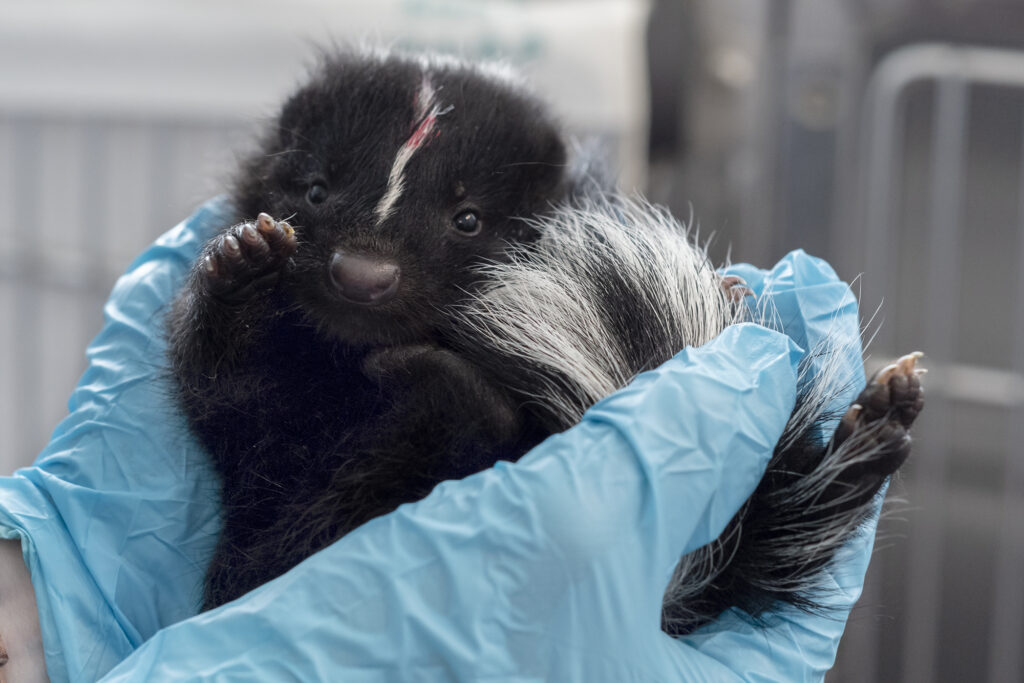
Diet
Skunks are omnivores and feed on both plants and meat – these could be anything from insects and rodents harmful to gardens and farms, to fruits and nuts found on the ground. They are an excellent pest control, even consuming wasps that people typically do not want on their properties. Skunks are excellent diggers as well! Guided by their sense of scent, they use their claws to gain access to roots and underground invertebrates.
Seasonality
Skunks remain active throughout the year but typically spend their time in underground burrows, called dens, during the colder months of winter, eating and moving a lot less than they usually do during the warmer months. They do not fully hibernate in the winter but can enter deep sleep, called torpor, during times of extreme cold or excessive snowfall. In this state, they are still able to wake up intermittently.
Around mid-February to mid-March is mating season for the striped skunk. They are polygynous, which means that the males can mate with multiple females. The females will then give birth to kits from May to June, in litter sizes that can be anywhere from 2-16 but usually about 4-11.
Spring and summer are usually the best times to spot skunks out and about, as the adults and young are most active during these times. However, they are nocturnal and are mostly active after dark.
Life Cycle
Kits are vulnerable at birth and dependant on their mother for nutrition, staying in their dens until about 2 months of age. Afterward, the mother begins taking them out to learn skills in hunting and foraging. Striped skunks reach sexual maturity at about 10 months of age and may begin searching for their own burrows to inhabit. However, they typically stay in their mother’s den until after their first winter, when they are about 1 year of age.
Many of the striped skunks do not survive past their first winter, but those that do, may live up to 7 years in the wild. Skunks are adventurous creatures, able to make their ways in natural environments like hollowed trees and brush piles, but also in man-made infrastructures like people’s yards and under houses.
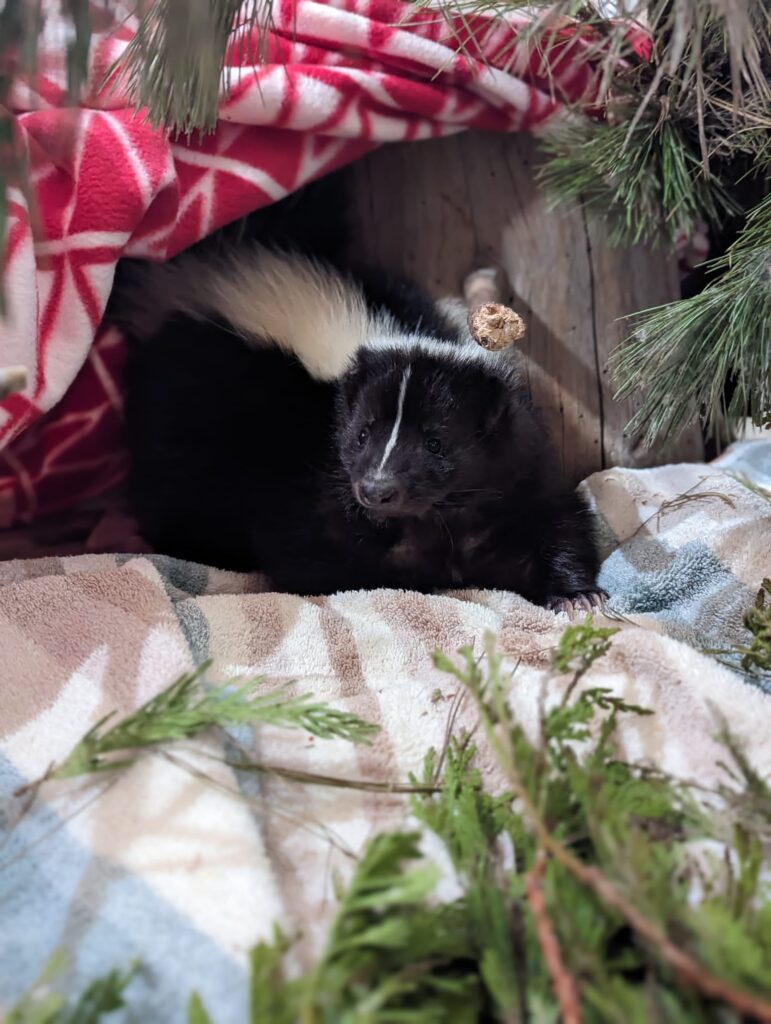
Keeping Skunks Safe
Every year, about 50-90 skunks are brought to AIWC, mostly due to human conflicts or interference. Some of the common ways skunks and kits are endangered are through being captured and relocated by homeowners, becoming trapped in small containers that impede their senses, and suffering attacks from people’s pets.
Relocation of skunks typically results in kits being orphaned and the inability of the relocated skunks to adapt to their new territory. Relocation is neither an effective way to keep skunks out of private properties. Deterrents must be practiced to fend off skunks more effectively.
Proper disposal of garbage and securing of trash bins would reduce scents that attract skunks and other wildlife. Some homeowners may even install motion-activated lights around their property that would cause skunks to avoid the area. Sealing off holes in the yard and around the house would reduce a skunk’s attraction to the property as well.
Most of all, if an injured skunk or suspected orphaned kit is spotted, make sure to contact AIWC by calling 403-946-2361.
References:
Alberta Institute for Wildlife Conservation. Skunks 101! [Video] YouTube. Posted March 30, 2020. https://youtu.be/cWVggPRG0uE
Cheevers, C. Not raising a stink: Where did the skunks go? Spectrum News 1. Last modified March 22, 2021. https://spectrumlocalnews.com/nys/central-ny/weather/2021/03/22/where-have-skunks-been-all-winter
Ontario SPCA and Humane Society. Do skunks hibernate? Ontario SPCA | Wildlife Fact Sheets. Last modified November 13, 2020. https://ontariospca.ca/blog/do-skunks-hibernate/
Smithsonian’s National Zoo & Conservation Biology Institute. Small Mammal House: Striped Skunk. Accessed on February 17, 2023. https://nationalzoo.si.edu/animals/striped-skunk

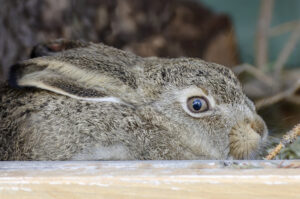
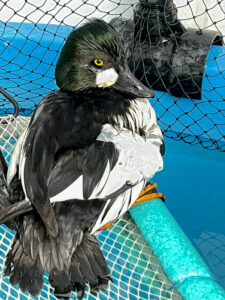
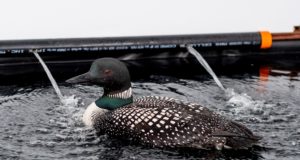


2 thoughts on “Wildlife Neighbours: Skunks”
A pointer or guidance to outfits or companies thar get rid of skunk odor would be great.
We are not familiar with any companies that remove skunk odor but from personal experience hydrogen peroxide, baking soda, and a soap/detergent detergent work great, vinegar can also be very helpful! Hope this helps!